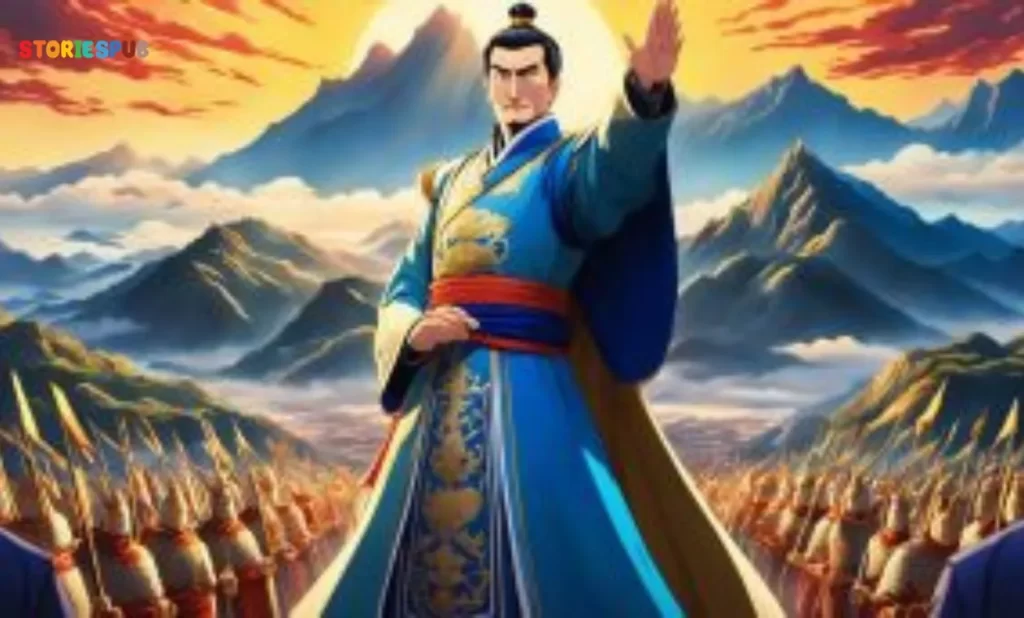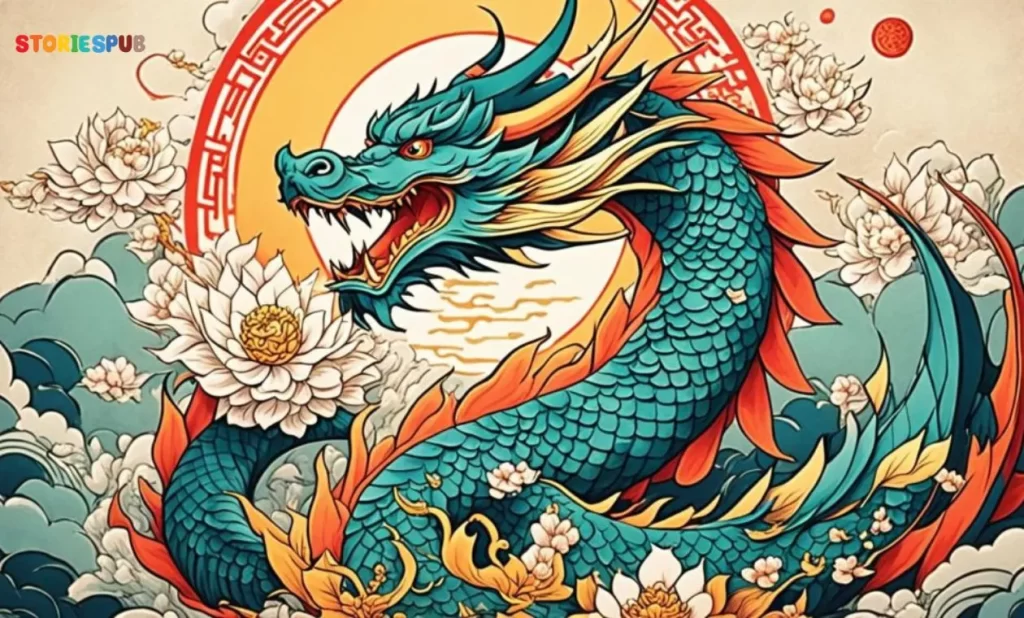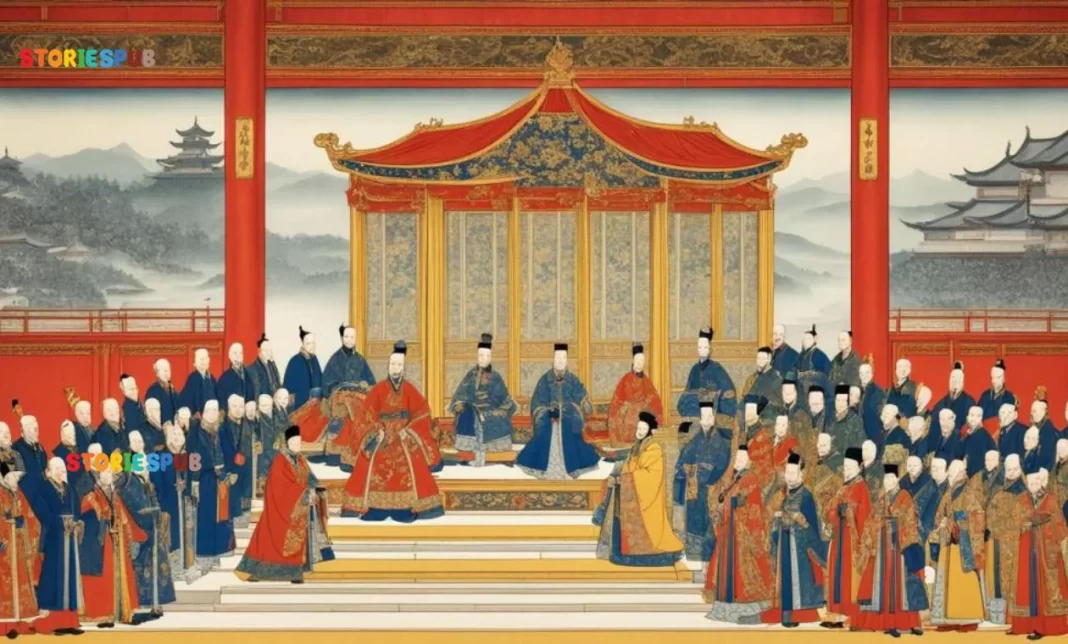
Emperor Kangxi, one of the most influential rulers of the Qing Dynasty, played a pivotal role in shaping the history of China. Throughout his reign from 1662 to 1722, he implemented significant reforms and achieved remarkable accomplishments that left a lasting impact on the nation.
Key Takeaways:
- Emperor Kangxi was a prominent ruler during the Qing Dynasty in China.
- His reign lasted from 1662 to 1722, and he implemented various reforms to shape the trajectory of the dynasty.
- Emperor Kangxi successfully expanded the Qing Dynasty’s territory and promoted cultural exchange, leaving a strong legacy.
- Confucian principles heavily influenced the Emperor, guiding his efforts to restore order and harmony within Chinese society.
- He engaged in diplomatic interactions with Western countries and embraced Western advancements in mathematics and sciences.
Kangxi Emperor Biography
The Kangxi Emperor, born in 1654, became the ruler of China at the tender age of eight following the death of the Shunzhi Emperor. His reign, which lasted for a remarkable sixty years, solidified his position as one of the longest-reigning emperors in Chinese history. During his rule, the Kangxi Emperor implemented significant reforms and policies that shaped the trajectory of the Qing Dynasty.
From a young age, the Kangxi Emperor displayed intelligence and a passion for learning. These qualities, coupled with his effective leadership skills, enabled him to overcome numerous challenges and establish himself as one of China’s most influential rulers.
“The journey of a thousand miles begins with a single step.” – Kangxi Emperor
The Kangxi Emperor’s reign marked a period of stability and prosperity for the Qing Dynasty. He made significant efforts to expand the empire’s territory, successfully incorporating various regions into the nation. His military campaigns and strategic alliances consolidated his power and solidified the Qing Dynasty’s position as a dominant force in East Asia.
The Kangxi Emperor’s commitment to cultural exchange and patronage of the arts also left a lasting impact. He fostered the exchange of ideas, literature, and art between China and other countries, contributing to the dynasty’s rich cultural heritage.
Timeline of Emperor Kangxi
- 1654: Birth of the Kangxi Emperor
- 1662: Ascends the throne
- 1673: Implements land reforms to benefit the peasants
- 1689: Signs the Treaty of Nerchinsk, establishing peaceful relations with Russia
- 1696: Suppresses the Revolt of the Three Feudatories
- 1700: Begins compilation of the Kangxi Dictionary
- 1722: Passes away after ruling for sixty years
Emperor Kangxi’s reign left an indelible mark on Chinese history. His intelligence, leadership, and dedication to the welfare of his people ensured his legacy as one of China’s greatest rulers.
Kangxi Emperor Achievements and Legacy
Emperor Kangxi’s reign was characterized by remarkable achievements and significant contributions, leaving behind a lasting legacy. One of his notable accomplishments was the successful expansion of the Qing Dynasty’s territory, which brought stability and consolidation to the empire. Through strategic military campaigns and diplomatic negotiations, Emperor Kangxi strengthened and solidified the empire’s dominion.
Emperor Kangxi was also recognized as a patron of arts and sciences, fostering cultural exchange and promoting intellectual pursuits. Under his patronage, the arts flourished, and advancements were made in fields such as literature, painting, and calligraphy. He encouraged the blending of diverse cultural influences, resulting in a rich and vibrant artistic scene during his reign.
Furthermore, Emperor Kangxi’s legacy includes the establishment of a strong central government and a well-organized military regime. With a keen sense of governance, he implemented effective administrative reforms that improved the efficiency and effectiveness of the empire’s bureaucracy. His emphasis on meritocracy and talent scouting ensured that competent officials held key positions, further strengthening the Qing Dynasty’s governance and stability.
“Emperor Kangxi’s achievements spanned across military conquests, cultural advancements, and institutional reforms, leaving an indelible mark on the Qing Dynasty and Chinese history as a whole.”
The impact of Emperor Kangxi’s rule extended far beyond his time, as his accomplishments and principles shaped the trajectory of the Qing Dynasty and continue to influence Chinese society today. His vision and accomplishments have left an enduring legacy that cements his position as one of China’s most revered and influential emperors.
Confucian Principles and Emperor Kangxi

Emperor Kangxi, one of the most influential rulers in Chinese history, was deeply influenced by Confucian principles. His adherence to these principles played a significant role in his efforts to restore order and harmony within Chinese society during his reign.
In line with Confucian teachings, Emperor Kangxi emphasized the importance of promoting family relationships, tradition, loyalty, respect, and education. These principles formed the foundation of his governance, shaping his policies and decision-making.
Emperor Kangxi understood that a strong emphasis on family relationships and filial piety was crucial for maintaining stability within the empire. He actively promoted the harmony between family members and encouraged mutual support and respect.
Furthermore, tradition and the preservation of cultural heritage were essential to Emperor Kangxi. He sought to protect traditional Chinese values and customs to foster social cohesion and national identity. His patronage of arts and literature also aimed to strengthen and revitalize Chinese culture.
Loyalty was another fundamental principle that Emperor Kangxi valued. He expected loyalty from his officials and rewarded those who demonstrated unwavering commitment to their responsibilities. By fostering a sense of loyalty, he aimed to create a unified and strong administrative system.
Respect for authority and hierarchical order was deeply ingrained in Confucianism, and Emperor Kangxi believed in upholding these values. He emphasized respect for elders, hierarchical relationships within the bureaucracy, and adherence to societal norms. This approach helped maintain social stability and disciplined governance.
Lastly, education was of utmost importance to Emperor Kangxi. He recognized that education was vital for the cultivation of virtuous individuals and for the progress of society as a whole. Emperor Kangxi prioritized the establishment of a comprehensive education system and encouraged intellectual pursuits.
Emperor Kangxi’s Diplomacy and Foreign Relations
During his reign, Emperor Kangxi of the Qing Dynasty engaged in diplomatic interactions with Western countries, including missionaries and merchants. Despite maintaining a level of condescension towards Western emissaries, Emperor Kangxi exhibited an openness to learning from them and incorporating Western advancements in mathematics and sciences into Chinese society.
“The Kangxi Emperor’s interactions with Western emissaries showcased a unique blend of curiosity and skepticism. While his court often dismissed Western ideas as inferior, he recognized the potential benefits of adopting certain Western innovations.”
Emperor Kangxi’s interactions with Western emissaries not only influenced the cultural exchange between China and the West but also contributed to advancements in various fields. The emperor’s interest in the West allowed for the introduction of new knowledge and technologies that further enriched Chinese society.
To foster these diplomatic relations, Emperor Kangxi created a special department known as the “Lifanyuan” or “Office of Barbarian Affairs” to handle foreign affairs and manage the interactions with the Western world. This establishment facilitated communication, trade, and negotiations with Western powers, ensuring that Emperor Kangxi’s vision of incorporating the best of both Eastern and Western civilizations was realized.
The Kangxi Emperor’s willingness to engage with the West demonstrated his astute diplomatic skills and strategic thinking, enabling him to strike a balance between preserving Chinese tradition and embracing external influences. His legacy includes not only the expansion of the Qing Dynasty’s influence but also the promotion of cultural exchange and the adoption of valuable Western knowledge and technologies.
Kangxi Emperor’s Personal Life
Emperor Kangxi’s personal life was marked by complexity and intricacies, especially in regards to his relationships with women and the resulting family he built. He had a significant number of children from various women, which was not uncommon for emperors of his time. However, it is important to note that his attitudes and actions must be understood within the context of Chinese society during the Qing Dynasty.
Despite having numerous children, Emperor Kangxi demonstrated a sense of honor towards women and acknowledged their role in his life. He made efforts to establish legitimacy and provide for his offspring, granting them official titles and placing them within the imperial hierarchy.
“The value of family and lineage in Chinese society cannot be underestimated. Emperor Kangxi, recognizing this, sought to ensure the well-being of his extended family and maintain harmonious relationships.”
It is worth noting that Emperor Kangxi’s attitudes towards women might be considered misogynistic by today’s standards. However, it is crucial to approach historical figures with a critical understanding of the prevailing cultural norms of their time.
For a visual representation of Emperor Kangxi’s personal life and his family, refer to the image below:
In this image, you can see Emperor Kangxi alongside many of his children and concubines, providing insight into the complexities of his personal life.
Kangxi Emperor’s Wisdom and Insights
Emperor Kangxi was renowned for his wisdom and profound insights, shaping his approach to governance and his understanding of human nature. His commitment to education and the pursuit of knowledge laid the foundation for his insightful quotes that continue to inspire and enlighten to this day.
“Knowledge is the key to enlightenment. It is through continuous learning and self-improvement that we unlock our true potential.”
These words from Emperor Kangxi highlight his belief in the transformative power of knowledge. He believed that education was not only a means of personal growth but also essential for effective leadership and responsible governance.
Emperor Kangxi’s insights extended beyond the individual to encompass broader societal values and moral responsibility. He understood the importance of maintaining a harmonious and just society based on principles of respect, loyalty, and the pursuit of virtue.
“Leadership entails not only power but also great responsibility. It is our duty to serve the people and govern with integrity and compassion.”
These timeless words of Emperor Kangxi reflect his understanding of the weight of leadership. He believed that leaders must prioritize the well-being of their subjects and govern with fairness and benevolence.
Emperor Kangxi recognized that true wisdom comes from a lifelong commitment to learning. He valued intellectual curiosity and encouraged his subjects to seek knowledge in all aspects of life.
“Every day is an opportunity to learn. Embrace new ideas, challenge assumptions, and never cease to expand your understanding of the world.”
This quote exemplifies Emperor Kangxi’s belief in the continuous pursuit of knowledge. He understood that personal growth and societal progress require a curious and open mind.
Emperor Kangxi’s wisdom and insights continue to resonate with us today, reminding us of the enduring value of education, moral responsibility, and a commitment to lifelong learning.
Kangxi Emperor and Chinese Ceramics
The Kangxi Emperor’s patronage of arts during the Qing Dynasty played a significant role in shaping the development of Chinese ceramics. With his support and encouragement, the production of exquisite porcelain pieces flourished, showcasing the artistic prowess of the period.
Emperor Kangxi’s passion for ceramics resulted in the creation of intricate designs and delicate craftsmanship, making the Qing Dynasty ceramics highly esteemed both within China and internationally. These porcelain pieces became exquisite masterpieces, admired for their beauty and technical excellence.
The Kangxi Emperor’s influence on Chinese ceramics extended beyond aesthetics. His patronage also stimulated innovations in production techniques and materials, pushing the boundaries of what was previously possible. This led to the emergence of new styles and forms, as well as advancements in glazing and firing techniques.
One of the most iconic features of Qing Dynasty ceramics is the “underglaze blue” decoration, known as “qinghua.” This technique involved painting intricate designs on the porcelain using cobalt blue pigment, which would then be covered with a clear glaze and fired. The Kangxi Emperor’s love for this style of decoration contributed to its popularity and widespread adoption during his reign.
Moreover, Emperor Kangxi’s passion for collecting and preserving ancient Chinese ceramics further enhanced his appreciation for the art form. He amassed an extensive collection of rare and valuable pieces, understanding their cultural and historical significance.
The Kangxi Emperor’s patronage of arts, particularly his support for Chinese ceramics, ensured the continuation and refinement of this ancient art form in the Qing Dynasty. Today, the legacy of his influence can still be seen and admired in the masterpieces that grace museums and private collections around the world.
Kangxi Emperor’s Succession and Valedictory
Choosing an heir was a crucial responsibility that Emperor Kangxi faced during his reign. His eldest son consistently fell short of expectations, posing a challenge to the succession process. However, the Kangxi Emperor’s commitment to reason and responsibility prevailed over emotional attachments.
With careful deliberation, the Emperor made a sound decision regarding his successor. This choice was driven by his keen understanding of the empire’s needs and the desire to ensure a seamless transition of power.
“I must prioritize the welfare of the empire above personal feelings. It is my duty to make the best choice for the future of our great nation.”
Emperor Kangxi’s valedictory speech serves as a testament to his wisdom and introspection. In this poignant address, he reflects on his achievements and failures, demonstrating a ruler at peace with his actions.
Though he acknowledges areas for improvement, the Emperor recognizes the depth of his accomplishments, guided by a steadfast commitment to the betterment of his people and the empire’s prosperity.
As Emperor Kangxi meticulously charts the course of his reign, he considers the impact of his decisions on future generations. His succession plan and valedictory stand as testaments to a ruler who prioritized the well-being of his empire above all else.
Conclusion
Emperor Kangxi’s reign as the ruler of the Qing Dynasty left an indelible mark on Chinese history. His power and influence shaped cultural and societal advancements that continue to be celebrated today.
Emperor Kangxi’s commitment to Confucian principles played a significant role in restoring order and harmony within Chinese society. His dedication to family relationships, tradition, loyalty, respect, and education laid the foundation for a strong central government and a successful military regime.
Furthermore, Emperor Kangxi’s diplomatic prowess and interactions with Western emissaries showcased his openness to learning and incorporating Western advancements into Chinese society. His patronage of the arts, especially Chinese ceramics, contributed to the development of exquisite porcelain pieces that are highly esteemed internationally.
Emperor Kangxi’s legacy as a revered figure in Chinese history is a testament to the lasting impact of his reign. His contributions continue to be studied, admired, and celebrated in Chinese society, making him an iconic ruler in the annals of Chinese history.
Thanks For Reading…Emperor Kangxi: Insight into China’s Great Ruler
How much did you like the Emperor Kangxi: Insight into China’s Great Ruler? Please share your views in the comment box. Also, please share this story with your friends on social media so they can enjoy it, and for more such stories, please bookmark storiespub.com.
Check out other stories that we have:
























